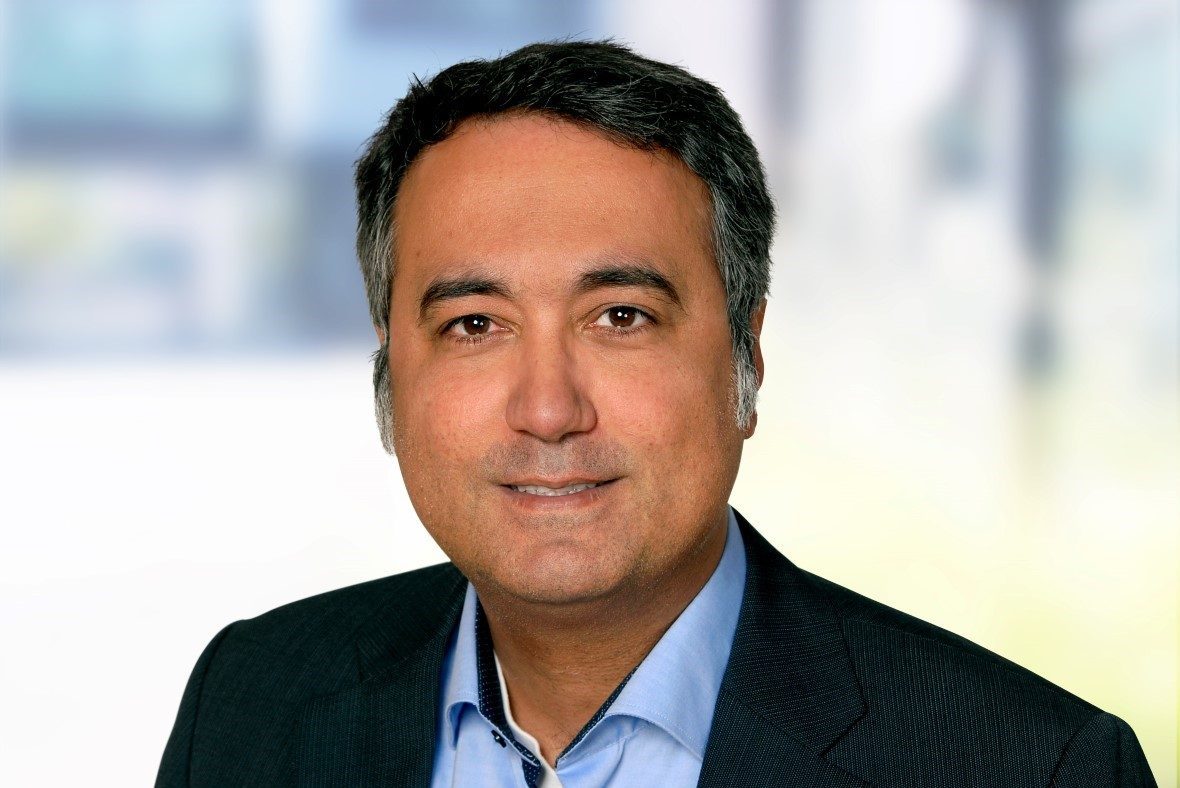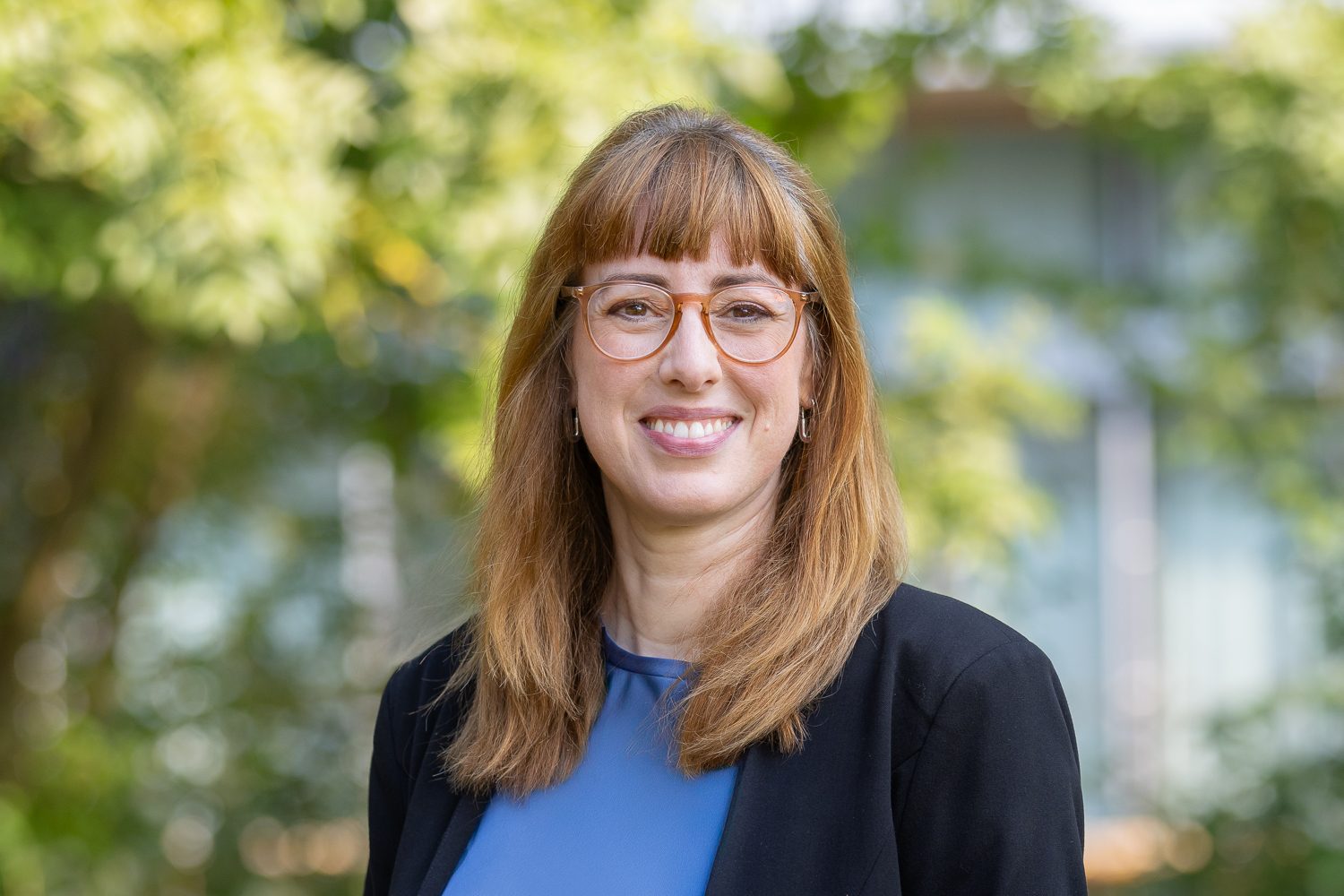
»Sustainable membranes are the invisible heroes of our everyday lives« – Dr.-Ing. Murat Tutuş develops technical membranes for industrial use
At the Fraunhofer Institute for Applied Polymer Research IAP in the Potsdam Science Park, Dr.-Ing. Murat Tutuş develops technical membranes for industrial use. Membrane technology is versatile and deeply integrated into our lives and work – from water filtration in sewage treatment plants to ventilators in medicine. That is why their sustainability is so important to his work, Tutuş says. In this regard, he is looking forward to what the future will bring. Naturally, he has a few ideas he’d like to try out…
It must be interesting to see the world through Murat Tutuş’ eyes. Basically, he encounters his work everywhere he goes, even though it usually remains hidden from direct view. As department head at the Fraunhofer IAP, Tutuş and his team develop polymer membranes. These membranes make our lives easier in many ways, he says: »Sustainable membranes are the invisible heroes of our everyday lives. Be it in the filtration of water, in sewage treatment plants, ventilators in hospitals or simply in the coffee filter that we put in the machine every morning.«
There is the right membrane for almost every filtration process
Put simply, practically any thin structure can function as a membrane. All it needs is the ability to be selectively permeable; that is, to capture certain substances while remaining permeable to others. The simplicity and versatility of this principle is what makes the technology so appealing to Tutuş: »There is the right membrane for almost every filtration process. You just have to find it.« However, as widespread as filtration is in everyday life and industry, the development of new membranes is complicated. »Whether a membrane is suitable for a particular purpose depends on hundreds of different parameters«, Tutuş says. For this reason, many manufacturers in the industry concentrate on producing a limited number of membrane types based on a single or a few polymers (an essential building block of membranes). Companies looking for the right filter for their product will thus have to search the market for a suitable candidate. If no supplier with a fitting membrane can be found, companies will have to invest in the development of a customized solution. This is exactly where researchers like Murat Tutuş and his colleagues at the Fraunhofer IAP come into play. They help industry to develop the right membrane for almost any purpose.
This process is long and complex, explains the engineer; and it has been almost impossible to automate so far. »In practice, technical membranes are produced by dissolving polymers in a suitable solvent. This means that we first have to find both a group of suitable polymers as well as suitable solvents. We then test these in several series of experiments.« This way, the scientists narrow down the number of possible combinations further and further until they have found the right match for their client’s desired purpose. That’s why the development of a membrane can take up to two years, Tutuş explains.
In search of sustainable alternatives
Because membranes are so prevalent in our everyday lives, Tutuş is particularly concerned about the issue of their sustainability. He believes that something needs to change in their production, in this regard: »Most of the common solvents used in membrane development and production today are highly toxic. In particular, this creates costs for the necessary safety precautions in laboratories and factories. So it’s also an economic problem.« However, the engineer is much more concerned about the risks to people and the environment. For this reason, together with scientists from his department at the Fraunhofer IAP, he has developed a patent for a process that uses non-toxic solvents, which is increasingly being used in practice.
In another project, Tutuş collaborates with researchers from the Helmholtz Centre Potsdam – German Research Centre for Geosciences (GFZ) as a partner of the alliance Wandel durch Innovation in der Region (Alliance for Change through Innovation in the Region, WIR!). Together, they are developing an agricultural sheeting intended to combine several properties: On cool days, it should be permeable to rain to ensure the irrigation of covered plants. On hot days, its pores should close to make sure evaporating water is collected in them. Finally, the material should be biodegradable. »This way, farmers no longer will have to dispose of the sheetings. All they’ll have to do is plough them up. In the soil, they will simply degrade and act as a fertilizer.«
Innovation hub with a family-like atmosphere
Anyone who hears Tutuş talk about his work and current membrane research quickly realizes how big an impact he is having in a field which, to the average person, may appear rather ‘niche’ at first glance. The fact that the Fraunhofer IAP is located in the Potsdam Science Park makes him optimistic that he won’t have to wait for his next opportunity to innovate for too long. He describes the atmosphere at the site as family-like, even beyond the confines of his own institute: »The Potsdam Science Park always gets us out of our own bubble – both professionally and privately«, he assures. Especially outside of work – in the cafeteria, when participating in university sports or at the community events on site – scientists and researchers from different departments meet one another. »In the best case, you stay in contact, inspire each other and later find an opportunity to collaborate professionally, too.«
For Murat Tutuş, the next project is sure to come, and with it the next challenge and opportunity to innovate and develop new membranes. It must be interesting to see the world through his eyes. He encounters his work everywhere he goes – sometimes, where even he doesn’t expect it himself yet.
This blog and the projects of Standortmanagement Golm GmbH in the Potsdam Science Park are funded by the European Regional Development Fund (ERDF) and the State of Brandenburg.
Contact

Karen Esser
PR & Communications
karen.esser@potsdam-sciencepark.de + 49 331 237 351 103